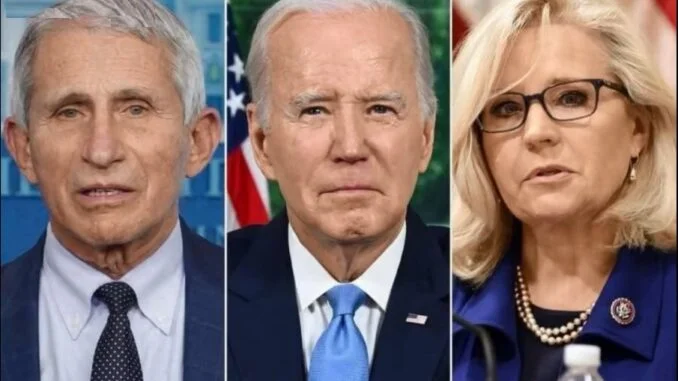
Biden’s Final Pardons Raise Eyebrows — and Legal Questions
In a stunning end-of-term decision, President Joe Biden issued a select round of pardons to individuals closely associated with his administration and legacy. Among the most notable: Dr. Anthony Fauci, the nation’s longtime public health chief, and Liz Cheney, former Wyoming congresswoman and outspoken critic of Donald Trump.
According to senior officials, the pardons were intended to act as a shield against potential legal retaliation under Trump’s incoming administration. The move is being widely interpreted as a preemptive defense in a political landscape bracing for fierce investigations.
But legal scholars say the strategy may backfire.
📌 Here’s why the pardons are controversial:
– Pardons eliminate the right to plead the Fifth Amendment, meaning recipients must testify if subpoenaed.
– The protection does not extend to lying under oath, which could still result in perjury charges.
– Some argue the pardons give Congressional Republicans more leverage to force high-profile testimonies.
“These pardons aren’t a get-out-of-jail-free card,” said one federal prosecutor.
“In some cases, they can actually remove legal protections.”
As Trump prepares to retake the Oval Office, allies have signaled plans to reopen investigations into the January 6 Committee, pandemic response decisions, and what they call “abuses of power.”
Biden’s team insists the clemency decisions were “measured and necessary,” but critics claim they may have unintentionally armed political opponents with exactly what they need.
Whether this was a final act of loyalty or a strategic miscalculation remains to be seen — but one thing is certain: the battle over accountability is far from over.
